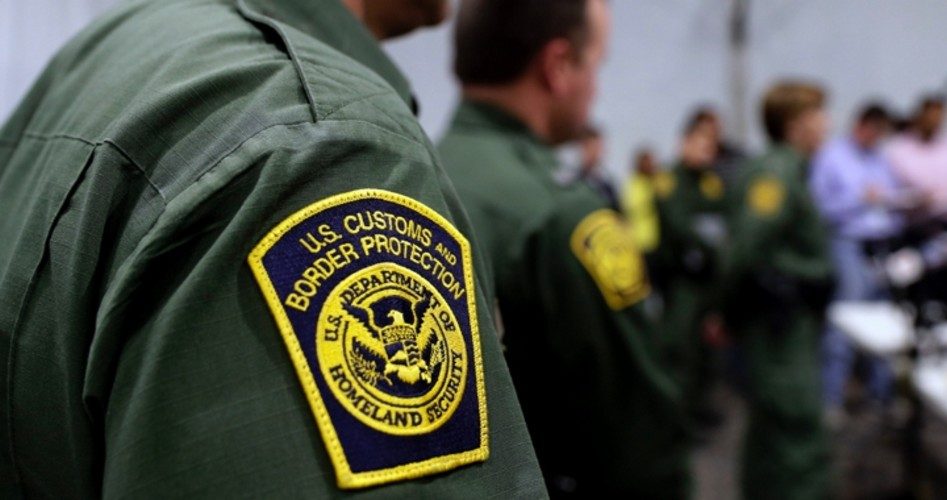
U.S. Border Patrol agents have apprehended or otherwise dealt with 676,315 illegal aliens so far in fiscal 2019. Most were apprehended between ports of entry, but the total doesn’t quite capture the extent of the border crisis.
That total, quickly closing in on 700,000, doesn’t include “got-aways,” the illegals who slipped by border agents such is the magnitude of the invasion.
The number of got-aways? Carla Provost, chief of the Border Patrol, told Congress yesterday said the number exceeds 100,000.
That’s 100,000 illegals, a figure about equal to the population of Boulder, Colorado, never to be seen again.
Border Agents Diverted
Provost divulged the figure in testimony before the House Homeland Security Committee’s Subcommittee on Border Security, Facilitation and Operations.
Reprising what chief of operations Brian Hastings told reporters in March, Provost said border agents are wasting so much time caring for illegals they can’t watch the border.
The massive influx and care they require, Provost averred in her written testimony, “has caused 40 to 60 percent of Border Patrol agents to be pulled away from our border security mission to provide humanitarian support — that’s 40 to 60 percent of our frontline workforce that is not available to stop drugs, gang members, and dangerous criminals from entering our country.”
Yes, border agents have apprehended or otherwise dealt with more than 600,000 illegals.
Yet “Border Patrol has documented more than 100,000 individuals who successfully crossed the border illegally and disappeared into border communities before agents could respond. This is the highest level of observed “got aways” since Fiscal Year (FY) 2014,” she said.
The illegals get away, again, she testified, because agents are “reassigned away from the frontline to provide humanitarian support to the unprecedented numbers of individuals and families in custody.”
As El Paso Border Sector Chief Aaron Hull told CNBC’s Maria Bartiromo in April, among the duties border agents now routinely perform are warming baby bottles and changing diapers.
Military Needed
Provost also testified that the deployment of National Guardsmen to the border is greatly helping apprehensions and the interdiction of drug traffic. The Guardsmen, who don’t have direct contact with the illegals and are not serving as border agents, provide air support and road and vehicle maintenance, as well as aerial and ground surveillance that helps the border agents collar drug smugglers.
“[Department of Defense] assistance has contributed to more than 87,000 deportable alien arrests, and the seizure of more than 24,000 pounds of marijuana, 228 pounds of methamphetamine, and more than $7,000 in currency,” Provost testified. As well, DOD’s fortified surveillance has “contributed to more than 13,000 apprehensions and the seizure of more than 3,700 pounds of marijuana and $2,000 in currency.”
Provost told the subcommittee members a few stories about the help her agency has received from the Guard:
In January … a Lordsburg Border Patrol agent operating infrared surveillance equipment saw four individuals walking northbound near a smelter on Highway 1113. The individuals were wearing camouflage clothing and custom-made footwear designed to mask their tracks. Border Patrol All-Terrain Vehicle (ATV) Units and a National Guard helicopter responded to the area, and the helicopter crew — equipped with night vision equipment — was able to locate the four individuals. The helicopter crew guided the ATV Units to the hidden individuals, who were arrested. The National Guard crew then alerted and guided the agents to several large rectangular burlap sacks in the area, which tested positive for marijuana. In total, the bags of drugs weighed 135.6 pounds, with an estimated street value of $108,640.
Babysitters and Nurses
But back to the Border Patrol’s new portfolios: nursing and babysitting the illegal migrant children.
In March during his news conference, Hastings said 25 to 40 percent of his agency’s manpower at the border went to the care and maintenance of the illegals, 55 of whom went to the hospital or a medical facility every day.
Now, Provost says the figure is 60 percent, which means the problem has worsened.
But either figure means agents are exposed to the Third World germs that illegals bring with them, as Hull told Bartiromo.
A top agent and union official told the Washington Examiner that many agents are sick. “The other day I talked to agents from four different stations,” he said. “And every single one of them had a cough.”
And every single one of them has friends and family who will be exposed the same contagious germs.
Photo: AP Images




